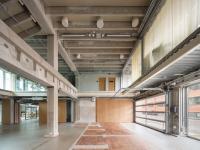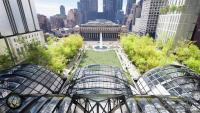HafenCity
Hamburg, Germany
In Hamburg, the former port area along the River Elbe is being transformed into a lively urban zone. Practical experience has demonstrated that traditional planning instruments are unsuitable tools for guiding restructuring projects on this scale; masterplans are often overtaken by events within a short space of time, and the quality can no longer be controlled. Hence the decision to opt for a combination of fixed basic principles and operationally manageable rules.
The design process involved testing how various combinations of these guiding principles and rules would react to different urban planning structures, programs, densities and growth prognoses. The results provided a wealth of information for development of concrete spatial designs.
'HafenCity' is characterised by a metropolitan mix of living, culture, tourism, leisure and business and is set to become a lively waterside urban district. The program is a 165 ha masterplan with 2.000.000 m2 for 5.800 residences and 45.000 workspaces, culture, leisure, restaurants, retail, parks, squares and promenades.
In the space of 25 years, eight sub-districts will be developed, proceeding from West to East. The area has been subdivided into zones which have been assigned specific qualities and limitations and combining different functions in the sub-districts establishes urban communities that function 24 hours a day. This, in combination with a flexible set of rules, generates maximum freedom for the programmatic infill and the architectural design. At the same time, the preservation of the old port structure and the retention of visually defining elements provide the requisite cohesion in the area.







